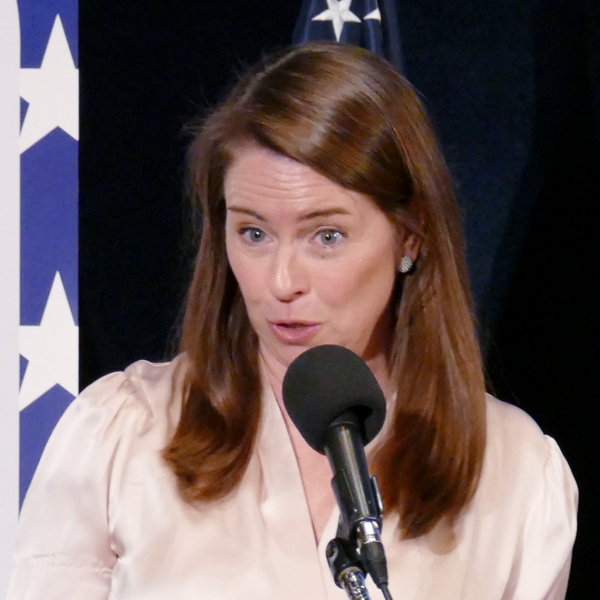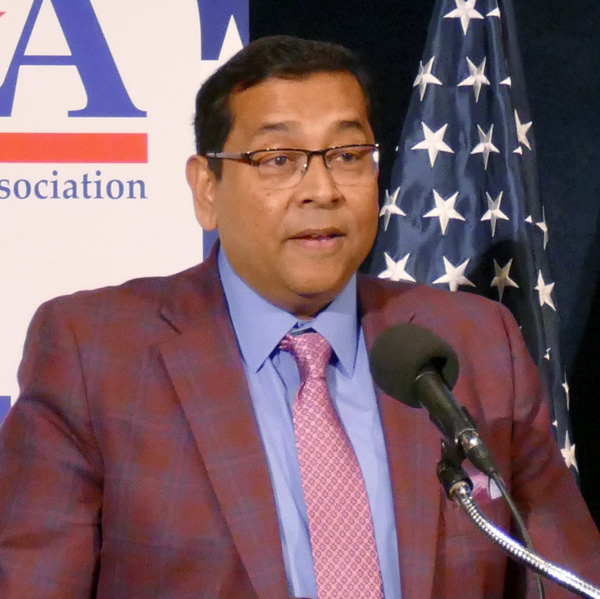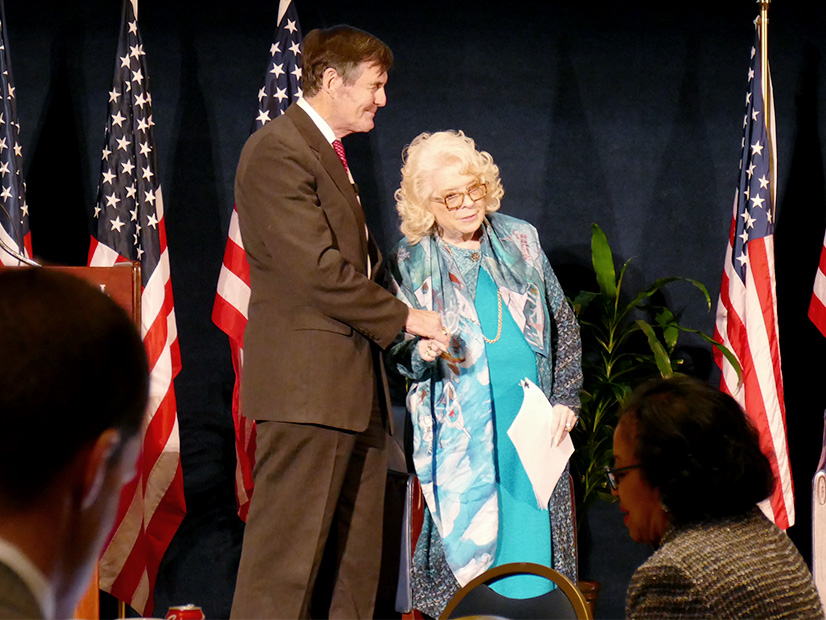WASHINGTON — The United States Energy Association on Thursday gathered senior leaders of the major trade associations at the National Press Club, where they focused on implementing major energy legislation passed last year and many argued for reforms to permitting processes.
The passage of the Infrastructure Investment and Jobs Act and the Inflation Reduction Act gives the energy industry plenty to implement, but Edison Electric Institute President Thomas Kuhn said Congress still needs to pass more legislation to make the investments those laws promised a reality.
“One of the things on our priority list is siting and permitting,” Kuhn said. “If you want to have the benefits of the two major legislative initiatives over the past couple years, you’ve got to be able to do siting and permitting more efficiently.”
While changes to energy project permitting laws have some bipartisan support, different interest groups have their own ideas, and it will be challenging to bring them together and get something done, he said.
The electric industry has made significant cuts in its emissions over the last 10 years and many utilities have plans to clean up even more in the coming decades, but Kuhn warned against getting rid of all fossil fuels too quickly. With so much changing now, it does not make sense to take a major source of energy away all at once, he said.
“Some people want to take natural gas away,” Kuhn said. “You know, I’ve got to tell you, if you want to do this job and you want to do it reliably and mildly affordably, you’re going to need natural gas. It’s that simple.”
Generators switching from coal to natural gas have helped bring emissions down to 30-year lows, American Gas Association President CEO Karen Harbert said. The gas industry has been trying to clean up and working to cut its methane emissions, she said.
“If the conversation is about reducing emissions, we’re all in,” Harbert said. “If the conversation is about putting us out of business, not so much. Because there is no way to address energy security, environmental progress, economic security and national security without natural gas in our system.”
 Interstate Natural Gas Association CEO Amy Andryszak | © RTO Insider LLC
Interstate Natural Gas Association CEO Amy Andryszak | © RTO Insider LLC
Interstate Natural Gas Association of America CEO Amy Andryszak argued that many states are enacting policies that favor renewable energy while discouraging new sources of natural gas that would help balance those resources.
“We know the Northeast is supply-constrained — not due to a lack of available natural gas in the United States,” Andryszak said. “Actually, we have the Marcellus right next door. But regulatory decisions and bad policies have contributed to this problem.”
INGAA supports “smart policies” aimed at reducing carbon emissions, but, echoing Harbert, Andryszak said if the conversation is really about eliminating natural gas, then the pipeline trade group is against it.
One major policy Congress has to deal with is the debt ceiling, said American Petroleum Institute CEO Mike Sommers, who was involved in such discussions as a senior staffer for Republican congressional leaders in the 2010s.
“There are big things that could get done, like permitting reform on a bipartisan basis, potentially as part of the way that we get the debt ceiling lifted as well,” Sommers said. “So, I’m optimistic that this is going to get done. I think we should all get used to some panic moments. But I’m confident that our leaders are going to get this addressed in a timely fashion.”
Germany now has five LNG terminals after it worked to replace the Russian-supplied natural gas that it embargoed after the invasion of Ukraine.
 Electric Power Research Institute CEO Arshad Mansoor | © RTO Insider LLC
Electric Power Research Institute CEO Arshad Mansoor | © RTO Insider LLC
“And they built one of them in six months, when the typical receiving terminal is a two- to three-year time period,” Electric Power Research Institute CEO Arshad Mansoor said. “So, they figured out when there’s a necessity permitting can be streamlined.”
Germany has been a leader in moving to renewable energy, but it also has avoided completely retiring coal plants; that decision proved prescient this winter as they had to be used much more often than when the country was awash in cheaper Russian gas, he added.
“I think it’s a general belief that for all of us in the research community [and] in the technology community, that we must have optionality in our clean energy transition,” said Mansoor.
Natural gas plants are still relatively young when it comes to infrastructure, and Mansoor said that early studies have found that they could run blends of 20% or 40% clean hydrogen to minimize their emissions while maximizing their usefulness to the grid.
The industry has to prepare for more extreme weather and do so ahead of time, Mansoor said. While utilities have often done well upgrading their systems after a natural disaster, climate change means extreme weather will be more common.
“How do you proactively make that investment?” Mansoor said. “Don’t wait for the flood; anticipate weather in 2030, 2045, … and start building infrastructure for that weather.”


